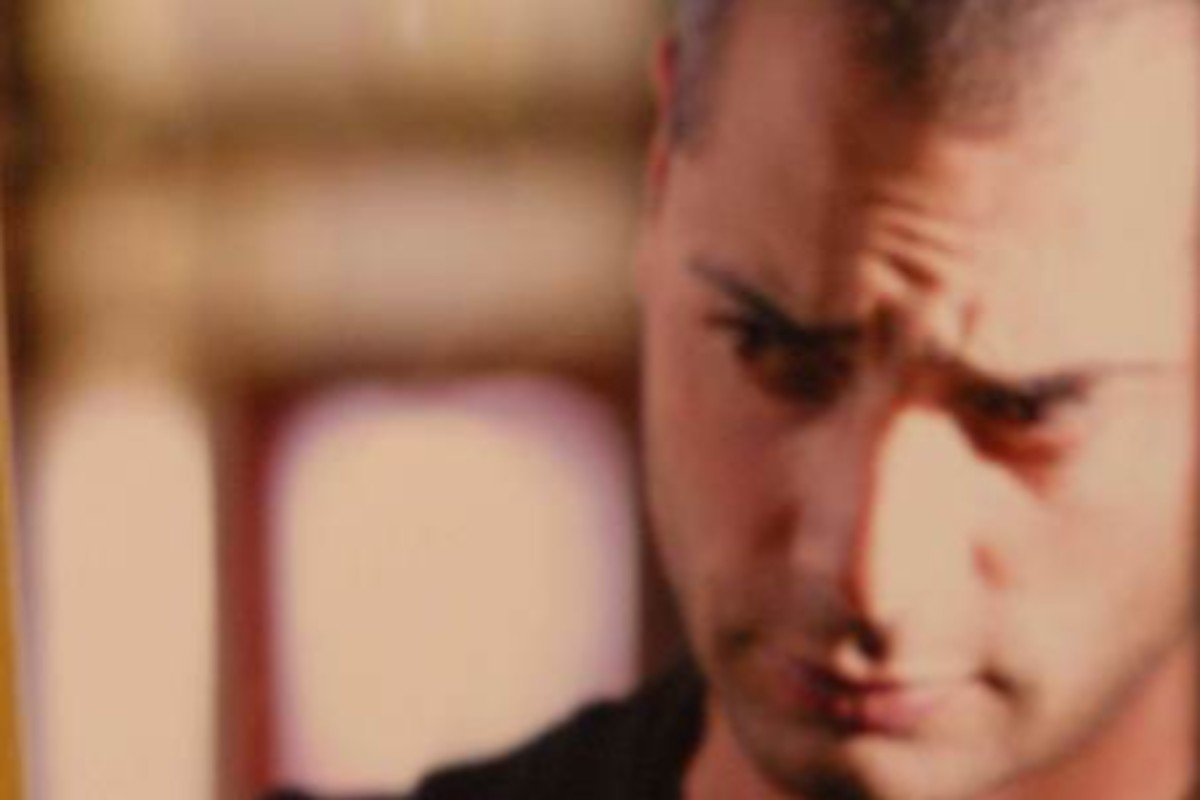
“Well, thank you for spending the time giving me a listen. I’ll try no to be too long-winded. I have been working in the film biz for over 20 years. I am a set grip so I am doing lighting, amongst other things, all day long at work. It is a great way to learn the craft…by being on set all day watching and being a part of the action.” says David Palmieri Very early on in his career, David wanted to get into directing. So he did. And about 12 micro-budget features later, here he is. Simply put, David a fast director. “It is my style to not have a lot of downtime on set. I like to keep the energy up and the project moving. 12 hour days max otherwise I get burnt out. And on tiny budgets, I value people’s time especially…whether it be cast or crew,” says David
And I want the actors to maintain their creative energy, so I don’t like them having to sit around waiting. Usually on my directing projects so far, I am also the cinematographer. That combination makes it easy to move fast, because I don’t have to consult with the cinematographer, as the director, because I am both people. And as a cinematographer, I use my knowledge of being on big sets for 20 years, to know how to rocket through lighting setups. I light quickly and with as few lights as possible while still delivering a nice stylized image, which I think is needed for the horror genre. I have done very little natural light looking projects. That is not to say that some scenes in every one of my movies don’t have just natural lighting, because it does. Most of the time it’s the day’s exterior stuff. Not even a bounce board most of the time.
The official trailer for Heart of the Home co-written and starred in by Elisabeth Steen-Nokleberg
indieactivity: How do you choose a project to direct? Why filmmaking and screenwriting?
David Palmieri (DP): I mean let’s be real here. I am not getting my door knocked down with a pile of scripts, that I get to pick and choose from. So sometimes the decision is just that I want to create something, and this person is asking for me to create something for them, so I say yes. I mean, hey, I want to work. Having said that, the first thing I do is read the script. If it is not a script that I am digging on, then I say no to the project. If it is not a script that seems ‘shootable’ within the given budget, then I will possibly say no, or request that script changes be made. So far, my directing has been in the horror genre. So that’s what has been put on my plate.
And the other big consideration is time. Depending on my work schedule, sometimes I have to squeeze a directing project into my busy life. Or sometimes I simply have to say no because of my other stuff going on in life. For ‘Heart of the Home’, I was in the middle of an extremely busy work situation. Working full time on a tv show. When I met with Elisabeth, we discussed the logistics of getting the project done, and on my end, I could only commit to shooting for 5 days. We agreed to make that work. We ended up turning that into 6 days to make it more manageable, but that was all the time we had. So upfront, we knew what we were faced with. But you can’t say no to every project, just because it’s going to be a pain in the ass to fit into your schedule. Gotta find time to make art!.
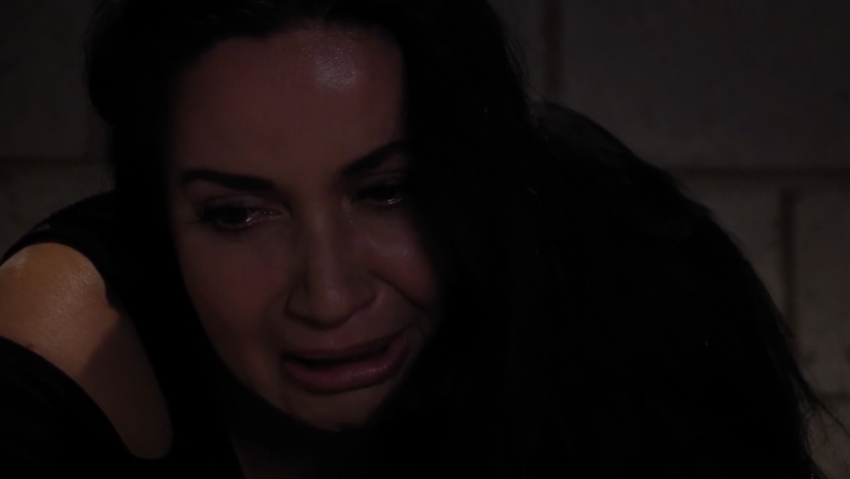
How can a filmmaker, if she so chooses, distribute her film? How do you get it in front of an audience?
David Palmieri (DP): As a filmmaker, I have very little interest in what happens to the project after the editing phase. That’s the honest truth. I leave the distribution up to the producers/distributors. As a result, I know very little about the film distribution biz. And so far, I am fine with that.
Is there anything about the making of the independent film business you still struggle with?
David Palmieri (DP): Yes. Time and money. Finding the time with everything else happening in life, to make a project happen. And, trying to get it done on a budget. But to be honest with you, that’s always going to be a struggle. I work on $200 million dollars projects, where sure enough, they are struggling with time and money. Haha. It’s just always going to be a struggle…no matter what.
Talk to us about your concept of collaboration?
David Palmieri (DP): I struggle with collaboration. To be totally honest with you. But certain projects definitely have more collaboration than other ones. I made a movie called Claw that I wrote, directed, DP’ed, and produced. I collaborated with no-one really. The executive producer gave me the money and that was the extent of the outside interaction. At least for the pre-production and production phase. I did hire an editor on that film. Although I can edit and have edited, I am not a fast or patient editor.
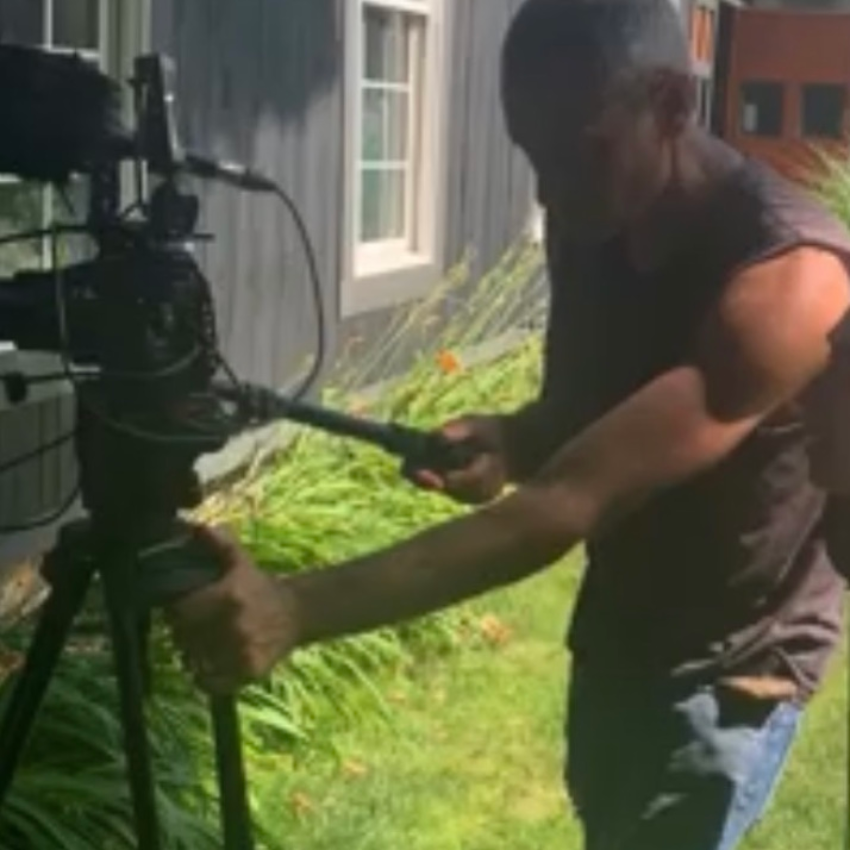
Editing drives me a little crazy actually. The fact that there is an infinite amount of ways to put together the footage mentally breaks me down a bit. Conversely, Heart of the Home may have actually been the most collaboration I have done on a project. Elisabeth was very involved in the film since she was a writer, actor, producer, and executive producer. She had very clear ideas of how she wanted things to be. So it was nice to have a lot of that weight lifted off my shoulders. That is not to say that we didn’t have any conflict along the way. But I think a bit of conflict in the creative process is necessary for general, and unavoidable when shooting independent films. We are both stubborn, in a good way, so that did create a nice base for that constructive conflict. Haha.
What uniqueness do female directors/filmmakers bring to film/tv/cinema?
David Palmieri (DP): Every person has a unique view on life, and so that shows up in their projects. Female filmmakers in general have the uniqueness of being females all their life. That gives a different angle to the stories than if a male was storytelling. And in the film industry, historically, women’s exposure to telling their stories has been limited. (Although that is getting better and better over time) But it is still hard to generalize what female filmmakers bring to the table. I’m not going to say that they bring a delicate touch to a project because there are some female filmmakers that bring harsh grittiness to a project and there are some male filmmakers that bring delicate to a project. It is just nice that everyone’s stories can get heard nowadays.
How do you find the process of filmmaking as an indie filmmaker?
DP: The process of micro-budget indie filmmaking is always going to be a little nerve-racking. It is that constant struggle with money and time. But it is also a bit refreshing because you are able to move quite fast. I love being able to power through and film a whole feature film in 6 days. That means the camera is rolling 3 hours a day. Actors are literally acting 3 hours a day. They aren’t sitting around waiting all day to act 3 lines. I shot 3 feature films at the same time a while back. They had the same cast and locations but they were 3 full feature films. And I only had 9 days to shoot all 3.
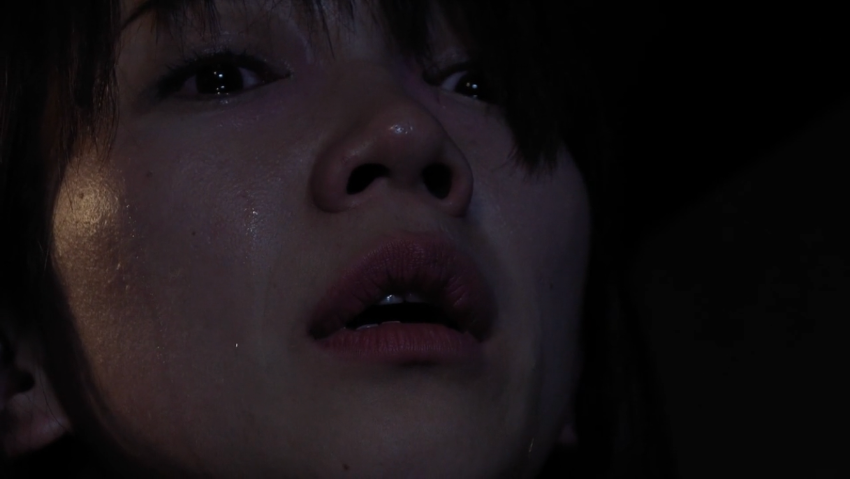
Consequently, there were actors that were delivering 20 pages of dialogue in a day. That is unheard of on a bigger sized project. So there is an energy to no budget filmmaking that by design gets lost on bigger projects. Nothing on a no-budget project can be as meticulous as a project that has more time and money. Sometimes it is nice to be able to say: ’Okay, well, let’s just say we got that, I think it’s good enough. Because we have to move on, we have 12 more pages to film today.’ The process becomes less bogged down if everything doesn’t have to be perfect. And it doesn’t have to be perfect because it simply can’t be perfect under the enormous constraints of no-budget filmmaking.
Why would you choose an actor, writer, or producer? What do you look for?
DP: Let’s talk about Heart of the Home specifically, in regards to this question. Here is where collaboration is key. I didn’t choose any of the actors in this film. I was like a TV director. I showed up to film and that’s when I was being introduced to the actors. Right before we started “rolling camera”. So sometimes there isn’t even a ‘why did you choose this actor from another actor’, sometimes that is done for you. And that leaves creative energy to work on other things, which is quite helpful. But to answer the question more generally, I choose people that are positive and enthusiastic, and professional, and one that knows that with the budget comes creative limitations. There’s no sense in trying to smoothly film a no-budget indie film with people that have no regard for time and budget. It just doesn’t work. It is doomed to failure.
At what period in the filmmaking process, do you need to start planning for distribution?
DP: My planning for distribution is usually limited to: ‘Am I filming in the correct resolution and is this thing in focus?’ That sounds like a joke but is surprisingly accurate. Distribution ain’t my bag.
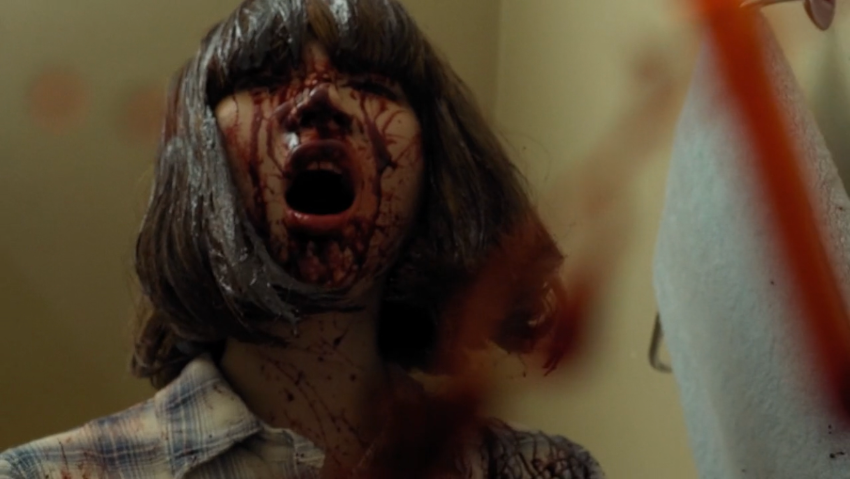
Indie filmmaking is a model of zero or small budget. How do you get a film to the audience with such a budget?
DP: As I said previously, you just power through it. Make it work. Cut corners if need be, make changes on the fly if need be. For example, for Heart of the Home, we had been shooting all day. The last scene of the day was to film the opening scene of the movie. We kind of planned to film it in a room at the apartment location. Make it look like a different location. Because that’s how it was written. But I made an ‘on the fly’ decision to find a deserted parking lot to film that scene. Have her sitting in a car instead of in a room. So we hopped in my car (which we used as the picture car for the scene).
Just me, Elisabeth, Mia the actress and Kevin sound. And we drove down the street and found this cool parking lot that was kind of like half inside half outside. it had that harsh fluorescent lighting and was moody and sinister. And so we filmed in the empty lot, at like midnight, and Mia was able to scream and really get maniacal. And we filmed for a bit and then packed up and left. All before the cops arrived. Haha. I say that from past experience. But anyway, it made for a great scene, even though it was made quite organically, still doing justice to the written word.
How do you think filmmakers can finance their projects?
DP: Filmmakers can finance projects however they want. I mean, robbing banks is frowned upon in my opinion. Preferably with Other People’s Money though. After all, filmmaking is a risky business venture when all is said and done.
How did you put the crew and cast together? Did you start writing with a known cast? What was your rehearsal process and period?
DP: The crew. Haha. Well, Elisabeth was wearing a bunch of hats, I had a handful of hats on as well. As a result, there was no AD, no prop person, no costume designer, no craft service person, no script supervisor, etc etc etc. Some people volunteered their valued time on occasion. And we hired Kevin Sound off of the internet I believe. And we had Reba doing makeup and John’s special effects makeup. I don’t really know how anyone was found specifically because I did none of the findings. Elisabeth pulled all of that together. Along with the casting and everything else.
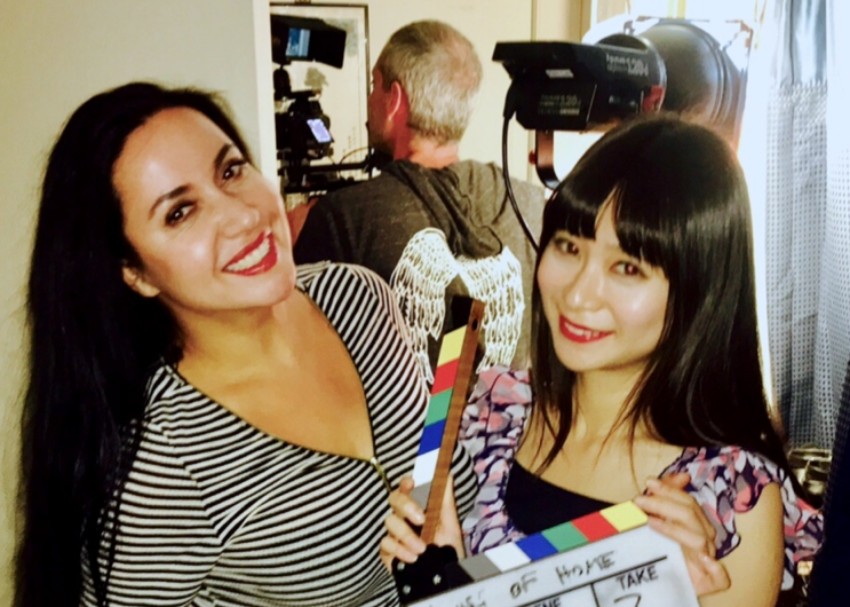
What and how long did it take to complete the script? (Was it a team effort or was it solo?)
DP: If the scriptwriting for Heart of the Home was a team effort, I was not on the team. Haha. Yes, it was a team effort and no, I did not help in the writing process. Like I said, I just kind of showed up with a bunch of gear, and we started filming. I didn’t even go to any of the rehearsals because I was working. Elisabeth really brought everyone together and made sure they were all prepared for filming. If something needed to be changed on set while we were shooting, that would be the extent of my involvement in the writing. Every project is different and there is no right or wrong way of doing it. This just happened to be the set of parameters available to us. Of course, Elisabeth and I decided ahead of time that we were okay with the fact that this is how it had to be. Open communication is key. Everything else can be figured out.
Did the tight shooting schedule make it harder or easier? How did it affect performances?
DP: The tight shooting schedule made it what it was. Obviously, when you have more time to film something you almost always take more time to film it. For me personally, I am constantly keeping one eyeball on the time. If we are running behind, I tend to make on the spot decisions to try to get back on track. Maybe lightless. Or Shoot less coverage on a scene. Maybe sacrifice that shot that might be cool but might end up on the cutting room floor. If I get a good take, really push to move on even if a safety take would be ideal. I just play it by ear…and by eye. In terms of performance, I think the easiest way to answer that is: If you are only going to get limited takes, as an actor, you better come prepared. It really boils down to the scenes for the day that are going to be filmed and used in the finished film, whether you are happy with your performance or not. There are no reshoots on a 6-day production.
How much did you go over budget? If you did, how did you manage it?
DP: Well, production-wise on Heart of the Home, I would say we did not go over budget much if at all. But Elisabeth can probably answer that question better than me. But I believe the post-production costs did start to skyrocket. Relatively speaking of course.
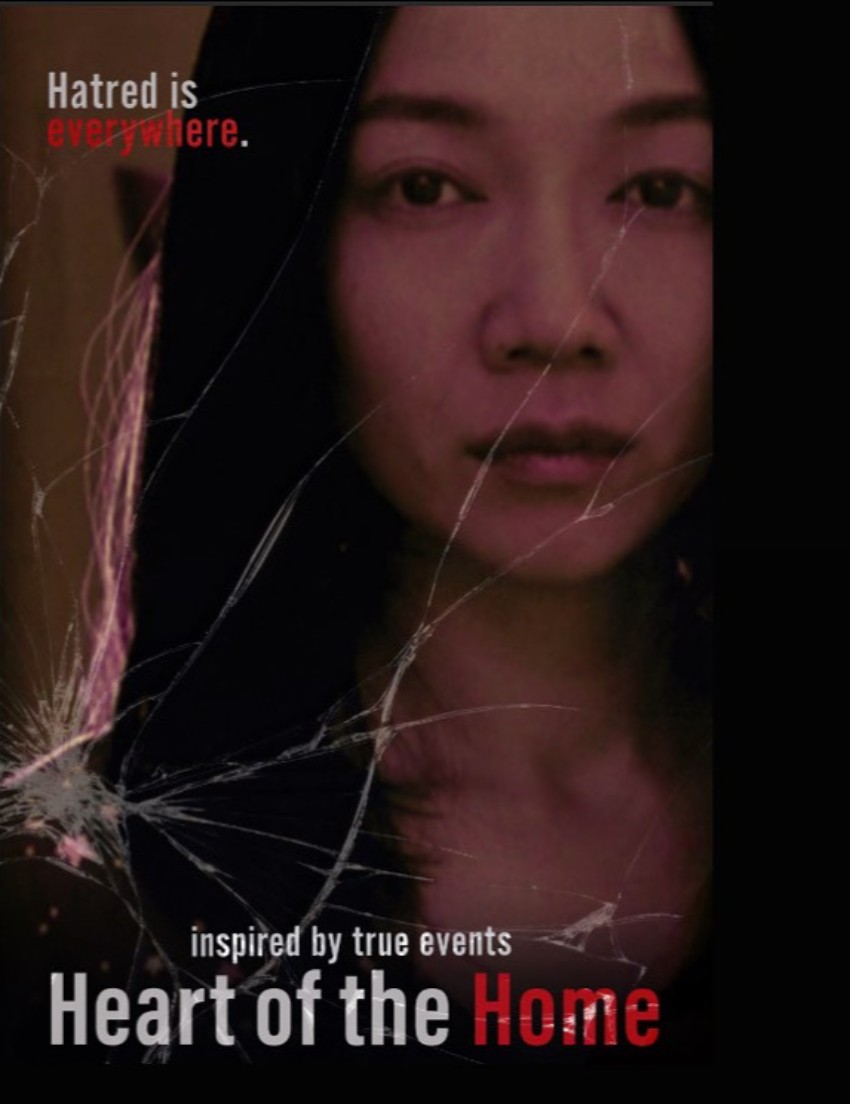
What other films have you written and made?
DP: Most of the films I have directed have been for the producer Sterling Entertainment. And like I said, it has been about a dozen micro-budget films. Axegrinder, Claw, Captain Battle, Snake Club, Disaster Wars, Witchcraft 14 through 16, to name a handful. The Only ones I have written were Claw (released) and Claw 2 (in post-production). And when I say it is in post-production, I have my final cut pro open in the background of my computer while I type out my answers to your interview questions, using my hard drive as a coaster for my morning tea.
What do you hope audiences will get from the presentation of your film?
DP: I hope the audience gets moved. That’s all you can really hope. Many years ago, I volunteered to teach a film theory class at a drug and alcohol rehab. We would watch clips from movies and talk about different techniques and elements of the film. But ultimately it always came back to answering the question: ‘Why did the filmmakers do this or that?’ And the answer that came up most was so that the audience would have an emotional connection to the film while watching. So I hope the horror movies create some tension and anxiety in the viewer. And of course, campy horror generates some laughter as well. Drama creates drama. Funny creates funny. That’s the ultimate goal.
What are your future goals?
DP: My future goal: Direct more. Direct outside of the horror genre. Write more. Have enough of a budget so that I can have editors do the post-production with me being able to give endless notes until the cut is to my satisfaction. Okay, ‘endless’ within reason. And to just have a big community of artists that I already have worked with…and a bunch of new ones. I am mostly in NY now, so I would like to film more stuff here. My Claw movies were filmed upstate with some scenes in NYC. I would love to film more in NYC. It is great. The production value of exterior NYC is astounding. And believe it or not, for all you guerrilla filmmakers out there, you can film all over the streets of NYC without a permit. Technically you have to be handheld and not block any sidewalks, etc. But it is totally allowed. So it’s fun to run around and not have to worry about being stopped.
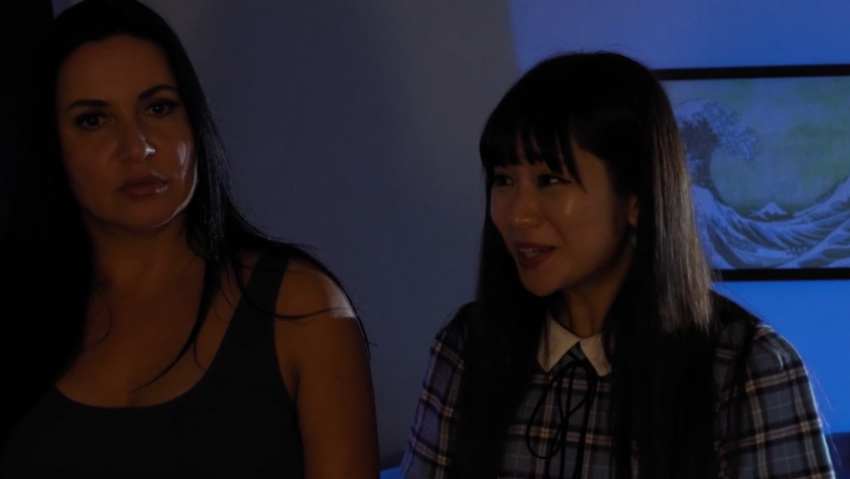
Tell us about what you think indie filmmaker needs in today’s world of filmmaking
DP: The most important thing an indie filmmaker needs? A great story. That’s it. Everything else can be purchased or rented, for peanuts. And the talent will follow if the story is there.
What else have you got in the works?
DP: As I said, right now I have a project that I need to edit. Please don’t make me do it! Send help! Haha. I am currently laboring through the rough cut. I can only edit a couple of hours a day before I start going crazy. As crazy as THAT sounds. I am in the development phase of a few female superhero microbudget films. I have a script I need to still write from a treatment that came to me in a dream. And whatever else comes down the pipe. I mean there are always endless amounts of art to be made if you really think about it. If you don’t have any money, then make a project that doesn’t need any money. If you only have 3 days free, then make a project that only takes 3 days. If you have a cool location available to you, then write a film that literally centers around that location and film it. Be creative in being creative. That’s my unsolicited advice. Thank you for your time and your forum. And I want to thank Elisabeth for really making Heart of the Home happen.
Tell us what you think of the interview with David Palmieri. What do you think of it? What ideas did you get? Do you have any suggestions? Or did it help you? Let’s have your comments below and/or on Facebook or Instagram! Or join me on Twitter.
Follow David Palmieri on Social Media
LinkedIn
IMDB
Facebook
Twitter
Richard Green Documentary, ‘I Know Catherine, The Log Lady’: Premiere in NYC, LA May 9th
Lynchian Doc I Know Catherine, The Log Lady Makes Hollywood Premiere 4/17, Rollout to Follow
In Camera by Naqqash Khlalid Launch on VOD April 29
Naqqash Khlalid’s Directs Nabhan Rizwan. In Camera stars an EE BAFTA Rising Star Award Nominee.
2025 Philip K. Dick Sci-Fi Film Festival Award Winners Announced
Vanessa Ly’s Memories of the Future Awarded Best PKD Feature
Dreaming of You by Jack McCafferty Debuts VOD & DVD for April Release
Freestyle Acquires “Dreaming of You” for April 15th Release
Hello Stranger by Paul Raschid set for London Games Festival & BIFFF
The film Is set for an April 10th Premiere at The Genesis Cinema in London (LGF) and BIFFF
Daydreamers Official Trailer by Timothy Linh Bui: Released by Dark Star Pictures
Daydreamers Vietnamese Vampire Thriller – May 2nd release









